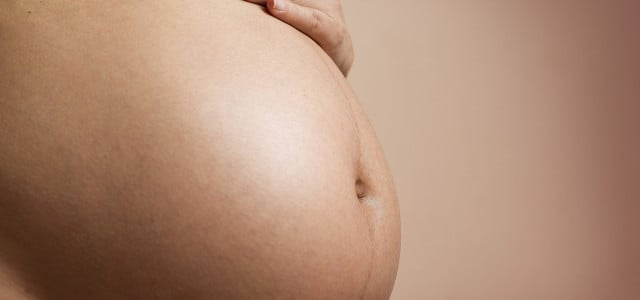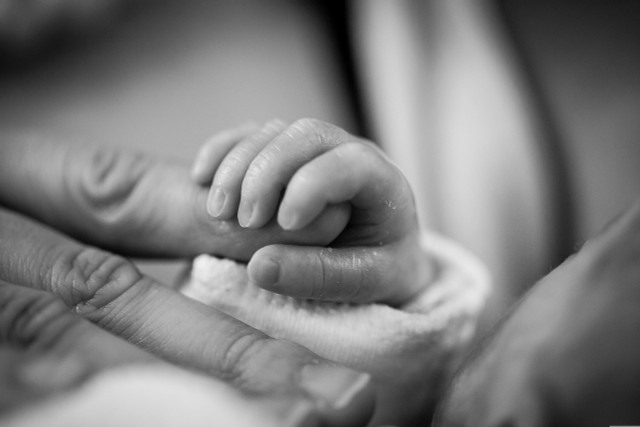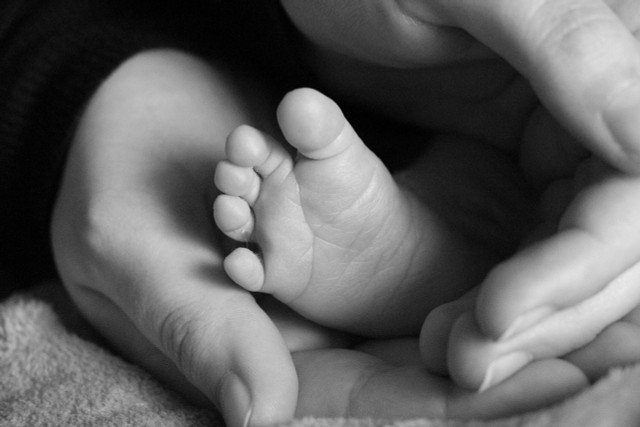
There are many myths surrounding the pain of childbirth. For example, it is the worst pain there is and can only be felt by humans. You can find out here whether these and other assumptions are actually true.
Tokophobia is the scientific term that describes an extreme fear of childbirth. According to Spektrum, it is estimated that around one in seven pregnant people worldwide suffers from it. The exact reasons are varied. For some pregnant women, there is also the question of whether they will be able to endure the pain of childbirth at all. Because there are numerous disturbing statements and assumptions circulating on the Internet and in magazines about exactly this pain. Especially for first-time mothers, many questions arise and may also be accompanied by increasing nervousness and fear.
In the following article you will learn:
- Is childbirth pain really the worst pain in the world?
- whether he has a biological sense,
- whether painkillers actually have a negative effect on childbirth,
- Does the child feel the pain?
- and whether childbirth pain really only occurs in humans.
Birth Pain: The Worst Pain There Is?

(Photo: urbia.de)
You may have heard from some experienced people around you that childbirth pain is a terrible feeling and cannot be compared to anything else. However, this is not a scientific fact. According to the portal gesundheitsinformation.de, each pregnant person perceives the pain differently. Some feel the birth pains only as a slightly painful pulling. Others find the pain of childbirth extremely distressing.
On the urbia portal, for example, a:e user:in writes that she perceived her birth pains as the most beautiful pains ever. Toothache and earache were significantly worse in comparison. Another person reports that she found the pressing pains towards the end of the birth to be particularly bad. Some other answers agree that the labor pains were bearable as they come in waves. There was therefore always a short time between the waves of pain to recover.
In fact, according to gesundheitsinformation.de, birth pain differs greatly from other types of pain in terms of its mode of action. Because pain during childbirth tells you that your body is pushing the child out of the uterus and vagina. They are therefore designed for a specific goal. Other types of pain, on the other hand, arise because we have injured ourselves or are ill. In these cases, there isn’t necessarily a foreseeable end or destination for the pain.
Birth pain: does it have a biological meaning?

(Photo: CC0 / Pixabay / SeppH)
According to the Frankfurt University Hospital, it is disputed whether the pain of childbirth actually makes sense from a medical and biological point of view. The assumption is circulating that the pain of childbirth would promote the bond between child and parent, especially without the addition of painkillers. After all, the child and the parent would have survived the physical pain together. However, this myth cannot be scientifically proven.
The health insurance company BKK Provita reports that the pain of childbirth is an essential factor for a healthy birth. In this way he would signal to a person that it is now time to find a safe place and support in order to be able to give birth to the child in a healthy way. Since labor pains also trigger stress, the pregnant person’s attention and concentration also increase. Last but not least, the pain causes the body to release pain-relieving hormones that promote childbirth.
This is also confirmed by the online magazine arborwoman. According to author and nurse Rachel Piersol, labor pain also helps guide a pregnant person through delivery. In this way, it indicates which position is most suitable for bringing the child into the world safely.
Painkillers and Childbirth: A Good Idea?
There are numerous ways to alleviate the pain of labor in a person giving birth. According to the Frankfurt University Hospital, a warm relaxation bath should help in some cases. According to the portal gesundheitsinformation.de, breathing and relaxation techniques, exercise, acupuncture, massages and regular changes of position are also recommended.
In addition, there are medications that relieve the pain. According to Netdoktor, this includes anticonvulsant painkillers that are available as infusions or suppositories. These have no side effects on the born child.
Opioids used as pain relievers can also have a calming and pain-relieving effect during the opening phase of labour. However, in some rare cases, they can lead to an unpleasant side effect. Because if the drug is not completely broken down when the child is born, it can block the child’s respiratory drive. Then doctors can inject the child with an antidote that stabilizes breathing again.
In the case of particularly severe birth pains and a long birth, doctors often recommend an epidural. An anesthetist administers a local anesthetic to the person giving birth at regular intervals via a catheter. According to Netdoktor, it can happen that the pregnant person has circulatory problems. However, there are also medications that can normalize the circulation again. Incidentally, the care of the child is also strictly monitored with an epidural. According to the Apotheken-Umschau, it has now been scientifically proven that the child is not affected by an epidural.
The gynecologist Dr. Ina Rühl reports to the Apotheken-Umschau that PDA is now heavily stigmatized. Some pregnant women are afraid that the anesthesia could negatively affect the birth. However, on the contrary, it may just facilitate childbirth. After all, the anesthetic allows the person giving birth to let go better and is less cramped. With some previous illnesses, however, an epidural is not possible. So whether an epidural is useful during birth should be discussed individually with midwives and medical staff. However, you do not have to rule them out in principle.
Does the child feel the pain of childbirth?

(Photo: CC0 / Pixabay / Kaedesis)
According to Daniel Surbek, the answer is yes. He is chief physician for obstetrics at the Inselspital Bern and co-director of the women’s clinic. According to him, a traumatic experience at birth can have a lasting effect on the life of the newborn. Even depression and heart problems may be linked to a difficult birth.
Surbek’s conclusions are based on a study published in 2021. The researchers examined how newborns reacted to three different types of birth in terms of stress and pain perception: a spontaneous birth, a birth with the help of a suction cup and a caesarean section. To do this, the scientists measured the children’s cortisol levels. This was lowest after a cesarean section. After 72 hours, it was still significantly elevated in infants born via ventouse.
According to Surbek, a ventouse birth could therefore be a risk factor for certain diseases in adulthood. However, the doctor emphasizes that this is only a theory that needs to be researched further. In addition, although the caesarean section did well in the study for cortisol levels, it entailed other risks. Therefore, people whose delivery involved complications should not feel guilty.
The nursing scientist tells the Swiss online magazine “wirEltern” that she has a completely different view of the study results. They would simply show that children have recovered from a ventouse birth after three days. In addition, the cortisol values between the comparison groups were not that different. In short, how exactly a child perceives birth pain and how it may be affected by the pain is still a scientific mystery.
Is childbirth pain something purely human?
It is also a common myth that childbirth pain only occurs in humans. And this corresponds at least to a large extent to the truth. According to the SWR, experts have already observed birth pains in some wild animals. But the pain is so intense and regular only during childbirth.
There is a central reason for this: evolution, as reported by SWR. So our upright walk led to a narrower pelvis and thus to a narrower birth canal. At the same time, by walking upright, humans were more able to hunt and thus eat meat and develop cognitively.
This left people with their hands free to make tools and develop new motor skills. Due to this fact and the protein-rich diet, the brain enlarged over time. And that now had to go through a narrower birth canal in a larger, hard skull. The result: greater pain during childbirth.
Read more on Techzle.com:
- Wash baby clothes: Before birth and when your baby is born
- Make gifts for birth yourself: 5 creative ideas
- Fear of childbirth: With these tips you can alleviate it